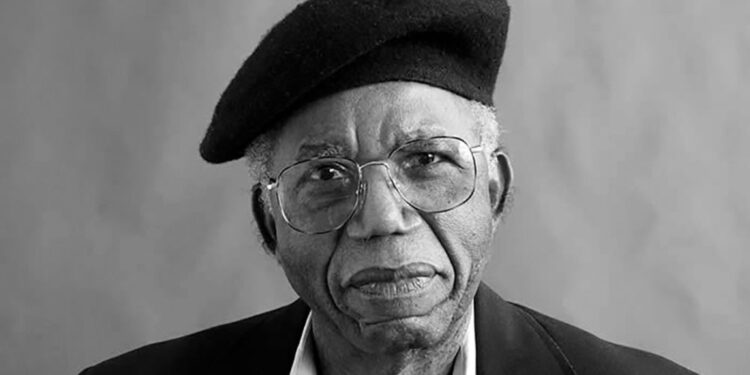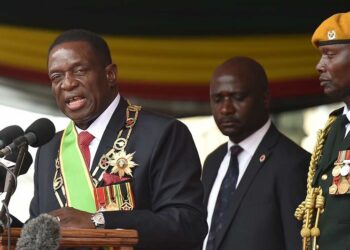Chinua Achebe, considered one of Africa’s greatest writers, is a Nigerian novelist, poet, and critic who brilliantly conveyed Africa’s voice to the world, telling the stories of his people in a style that earned him the reputation of a social historian, a cultural conscience, and a powerful voice against colonialism and the distorted image of Africa in Western literature.
Albert Chinualumogu Achebe was born on November 16, 1930, in the village of Ogidi, Anambra State, southeastern Nigeria. He was raised in a Christian Igbo family but was nurtured by the rich tales and traditions of his community, which profoundly influenced his worldview and subsequent writings. He was educated at prestigious missionary schools and then enrolled at Ibadan College (later the University of Ibadan, Southwest Nigeria), where he studied English literature, history, and theology.
During his undergraduate studies, Achebe began to question the stereotypical image of Africa and its peoples portrayed in Western literature. This led him to search for an authentic African voice to tell the story from an internal and realistic perspective.
In 1958, Achebe published his first novel, Things Fall Apart, which quickly became a landmark in the history of African and world literature. The novel tells the story of Okonkwo, a powerful warrior and tribal leader in the Igbo community before the arrival of British colonialists. Through the eyes of Okonkwo and his community, Achebe paints a vivid and accurate picture of traditional African life, with its complex social structures, deeply rooted customs, and profound human values.
A close examination of Things Fall Apart reveals that it was not simply a narrative of the life of an African community; rather, it was a direct response to the distorted and superficial image of Africa presented by colonial literature. Through it, Achebe debunked colonial myths that portrayed Africans as primitive and savage, revealing a rich and cohesive culture facing existential challenges with the arrival of the colonizer.
The novel succeeded in presenting complex and humane African characters, rather than the stereotypical creatures commonly found in Western literature. For example, Okonkwo, with his courage, pride, and human flaws, embodies the strength and resilience of Igbo society, yet simultaneously its fragility in the face of the tremendous forces of change brought about by colonialism. Achebe’s style in Things Fall Apart was innovative and influential, successfully blending refined English with the use of Igbo proverbs and folktales, lending the text authenticity and cultural depth. The novel is also distinguished by its tight structure and balanced narrative, which accurately depict the details of daily life, religious rituals, and the political system of pre-colonial Igbo society.
Following the tremendous success of Things Fall Apart, Achebe continued to explore the social and political transformations in Nigeria through his subsequent novels, often referred to as his “Nigeria Trilogy” (along with Things Fall Apart). The second of these, No Longer at Ease (1960), is a sequel to his first. It tells the story of Obi Okonkwo, Obi’s grandson, who returns to Nigeria from his studies in England and faces the pressures of modern life, his family’s expectations, and the rampant corruption in the emerging civil service in post-colonial Lagos. Obi’s struggle highlights the clash between traditional values and Western influences, ultimately leading to his downfall through his succumbing to bribery, revealing the complexities and moral ambiguity of a rapidly changing society.
The third novel, Arrow of God (1964), completing the Nigeria Trilogy, is set in another Igbo community during the British colonial period and focuses on Ezewilu, the high priest of the god Olu. The novel addresses the power struggle between traditional religious institutions and the colonial administration and explores the religious and cultural complexities faced by Africans under colonial rule. Arrow of God is notable for its insight into the spiritual fabric of Igbo society and its tragic portrayal of the clash of civilizations.
In 1966, Achebe published A Man of the People, a novel that addresses the political and social realities of post-independence Nigeria. Through the character of Obi Odili, a young intellectual who becomes involved in corrupt politics, Achebe exposes the scourges of bribery, opportunism, and tribalism that threaten the country’s future. The novel is characterized by its satirical and analytical tone regarding political corruption, and it seems to be a precursor to the military coups that Nigeria witnessed during that period.
After a period of literary silence due to the Nigerian Civil War and its aftermath, Achebe returned with Anthills of the Savannah in 1987. This novel is an in-depth look at post-independence Nigeria, exploring issues of power, corruption, and the limited role of intellectuals in a society plagued by authoritarianism. Through the characters of Chris, the intellectual thinker; Ikem, the revolutionary poet; and Beatrice, the strong and independent woman, Achebe presents a complex vision of the challenges facing modern Africa. The novel also features multiple narrative voices, giving the reader different perspectives on events and characters. It also addresses sensitive issues such as the role of women in African society and the conflict between the ruling elites and the people.
Achebe’s contributions were not limited to writing novels; he was also a prominent literary critic and thinker. In his influential essay “An Image of Africa: Racism in Conrad’s ‘Heart of Darkness,'” Achebe sharply criticized Joseph Conrad’s famous novel, arguing that it presented a stereotypical and racist image of Africa and its people. Achebe believed that Conrad portrayed Africa as a dark and mysterious backdrop for the actions of European characters, stripping Africans of their humanity and history.
This article sparked widespread controversy in literary circles and opened the door to a deeper discussion about the representation of Africa and Africans in Western literature. Achebe called for a critical reading of Western literature and the importance of authentic African voices narrating the continent’s stories from their own perspectives.
Chinua Achebe inspired a generation of African writers to tell their own stories and opened new horizons for understanding Africa and its diverse cultures. His works have been translated into dozens of languages and are taught in universities and schools around the world. Achebe also received numerous prestigious awards and honors in recognition of his literary and intellectual contributions, including the Man Booker International Prize in 2007.
Despite a car accident in 1990 that confined him to a wheelchair, Achebe continued to write and engage in public debates until his death on March 21, 2013, at the age of 82. He left behind a rich literary legacy that stands as a living testament to the power of words to challenge injustice, change perceptions, and build bridges of understanding across cultures.



























































